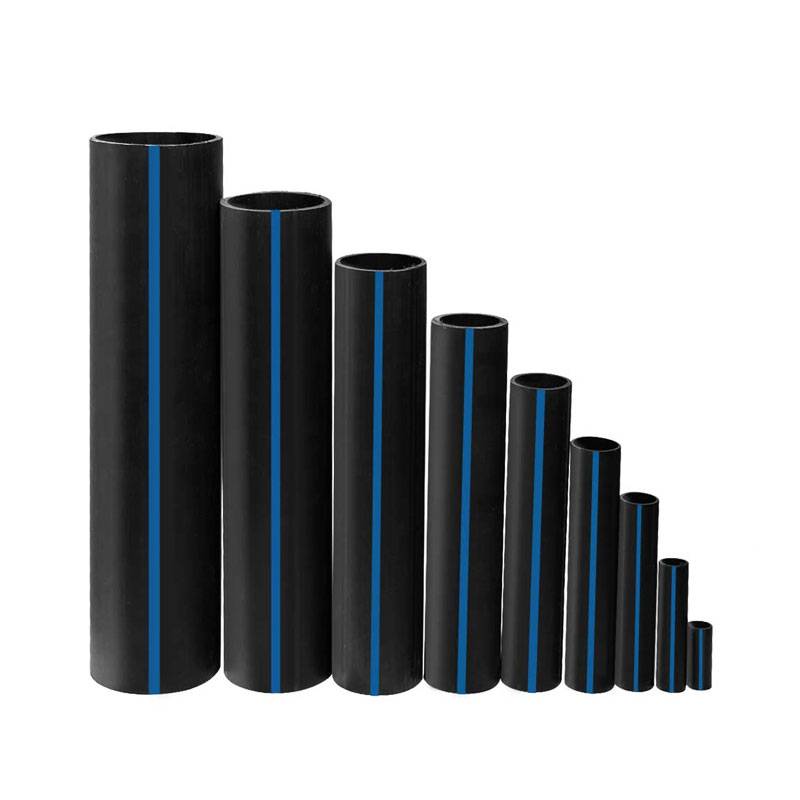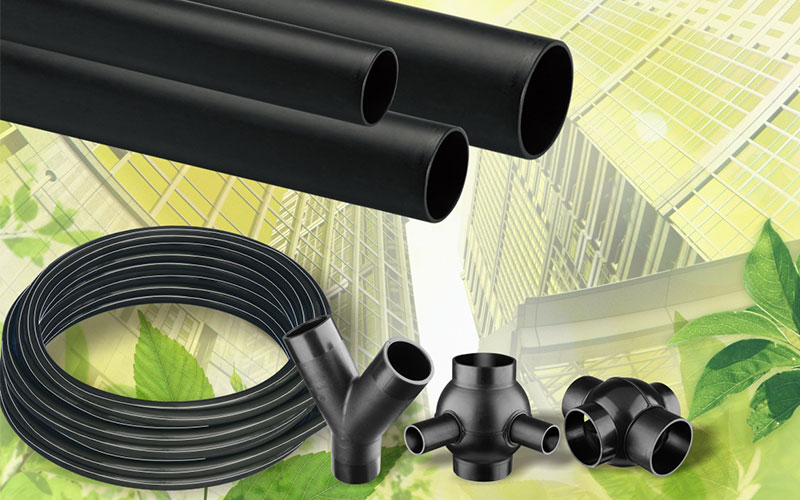Understanding the Trick Advantages of HDPE Pipeline for Water and Wastewater Management
The use of HDPE pipe in water and wastewater monitoring provides numerous benefits that merit consideration. Its extraordinary sturdiness and long life expectancy make it a favored selection for lots of tasks. Furthermore, the material's resistance to deterioration and chemical damages improves its integrity in numerous settings. The advantages expand past simply durability and resistance. custom hdpe pipe manufacturing Midland TX. Exploring its cost-effectiveness and environmental influence reveals much more compelling reasons for its extensive adoption in modern-day infrastructure
Exceptional Durability and Longevity

HDPE pipeline attracts attention for its exceptional resilience and durability, making it a preferred choice in water administration systems. Constructed from high-density polyethylene, these pipelines can withstand considerable stress and tension, making sure reliable efficiency gradually. Their durable nature allows them to endure extreme environmental conditions, including temperature variations and dirt activities, which can trigger other products to fail.
The life-span of HDPE pipes commonly exceeds 50 years, giving a cost-efficient option for towns and sectors alike. In addition, the product's lightweight residential properties simplify installation, decreasing labor expenses and timeframes. This durability minimizes the need for frequent repair work or replacements, further boosting its economic charm.
In water management applications, the integrity of HDPE pipelines indicates less interruptions and boosted service connection, making them important to lasting infrastructure growth. The mix of resilience and durability strengthens HDPE's duty as a cornerstone in effective water administration remedies.

Resistance to Deterioration and Chemical Damages
While several materials give in to corrosion and chemical damages gradually, HDPE pipelines display exceptional resistance, making them suitable for numerous water monitoring applications. This durability originates from the molecular framework of high-density polyethylene, which is inherently non-reactive and does not rust like steels or degrade from exposure to severe chemicals. As an outcome, HDPE is highly reliable in atmospheres with hostile materials, such as wastewater systems that might contain acids, bases, and natural solvents.
Furthermore, HDPE pipes can endure environmental aspects such as soil level of acidity and saline problems, even more boosting their viability for diverse applications (Pipe Manufacturing Midland TX). Their capability to keep architectural integrity over time minimizes the danger of leakages and failures, which is critical in guaranteeing the safety and security and integrity of water circulation and wastewater monitoring systems. The resistance to corrosion and chemical damages substantially contributes to the general performance and durability of HDPE piping services.
Cost-Effectiveness and Economic Benefits
When thinking about the monetary effects of water administration systems, the cost-effectiveness of HDPE pipes comes to be noticeable. These pipes offer lower setup and maintenance prices contrasted to typical products like metal or concrete. Their light-weight nature simplifies transport and setup, leading to reduced labor costs. Furthermore, HDPE pipelines display a lengthy life-span, usually surpassing 50 years, which equates to fewer replacements and long-term savings.
Moreover, the resistance of HDPE to deterioration and chemical damage lessens the requirement for costly repair services and substitutes. The pipelines also sustain reliable water circulation, reducing power prices connected with pumping systems. By minimizing leaks and water loss, HDPE pipes contribute to substantial economic advantages for communities and markets alike. Overall, the initial investment in HDPE piping can generate significant financial returns over the life-span of the water administration system, making it a prudent selection for sustainable framework development.
Environmental Sustainability and Decreased Influence

Versatility and Adaptability in Setup
As a result of their distinct properties, HDPE pipes offer impressive convenience and versatility in setup, making them ideal for a large variety of applications. Their lightweight nature permits for less complicated handling and transport, minimizing labor costs and installation time. HDPE pipes can be bent and formed to fit various surfaces and task demands, which is especially useful in testing atmospheres.
In addition, their resistance to deterioration and chemical damage enables installation in diverse setups without the need for specialized get more info protective coatings. The ability to fuse joints produces a constant, leak-free system, improving the general stability and reliability of the installment. HDPE's flexibility additionally accommodates ground motion, minimizing the threat of damages in areas susceptible to shifting dirt. Generally, these features make HDPE pipes not just functional yet likewise a preferred choice for water and wastewater management systems.
Often Asked Questions
How Does HDPE Pipe Compare to PVC in Water Administration Applications?
HDPE pipeline supplies exceptional flexibility, resistance to rust, and sturdiness contrasted to PVC. Its lighter weight facilitates simpler installment, while its long lifespan lowers replacement prices, making HDPE a preferred option in water administration applications.
What Is the Lifespan of HDPE Pipeline Under Regular Problems?
Under normal conditions, HDPE pipelines can have a life expectancy ranging from 50 to 100 years. Their longevity and resistance to deterioration add to their long-term performance in numerous applications, making them a reliable selection for facilities.
Are HDPE Pipeline Recyclable After Their Service Life?
Yes, HDPE pipelines are recyclable after their solution life. Midland TX HDPE Pipe Fittings in Stock. They can be refined and repurposed into new products, significantly decreasing ecological impact and promoting sustainability within the market, making them a green choice for piping solutions
What Is the Installation Process for HDPE Piping?
The setup process for HDPE pipes involves site preparation, trenching, pipeline fusion or mechanical signing up with, backfilling, and stress screening. Correct techniques assure a long lasting and reliable system for transporting water and wastewater properly.
Can HDPE Piping Be Made Use Of for Both Drinkable and Non-Potable Water Equipments?
Yes, HDPE pipes can be made use of for both safe and clean and non-potable water systems. Their flexibility, durability, and resistance to deterioration make them appropriate for various applications, making certain secure and reliable transportation of water in various contexts.